David La Barbera
HEROHE Challenge: assessing HER2 status in breast cancer without immunohistochemistry or in situ hybridization
Nov 08, 2021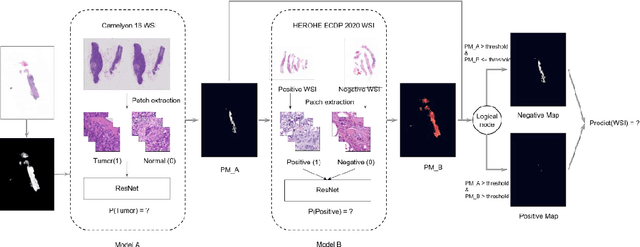
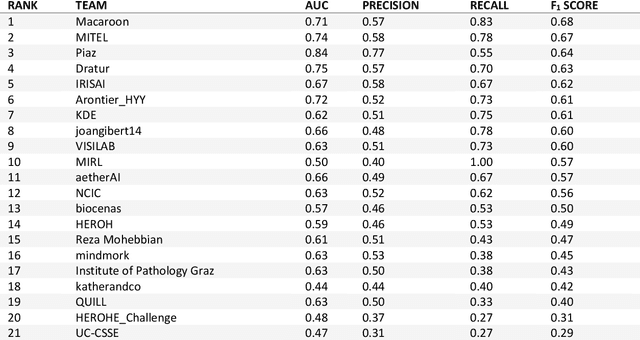
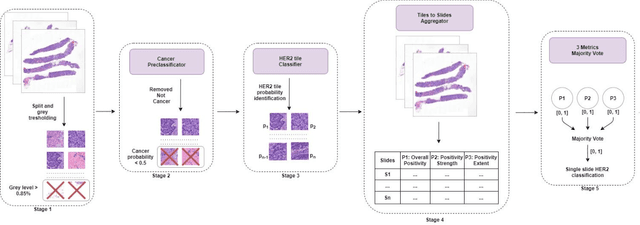
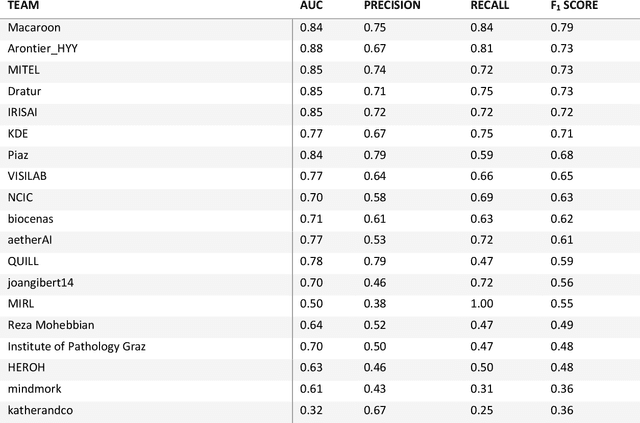
Abstract:Breast cancer is the most common malignancy in women, being responsible for more than half a million deaths every year. As such, early and accurate diagnosis is of paramount importance. Human expertise is required to diagnose and correctly classify breast cancer and define appropriate therapy, which depends on the evaluation of the expression of different biomarkers such as the transmembrane protein receptor HER2. This evaluation requires several steps, including special techniques such as immunohistochemistry or in situ hybridization to assess HER2 status. With the goal of reducing the number of steps and human bias in diagnosis, the HEROHE Challenge was organized, as a parallel event of the 16th European Congress on Digital Pathology, aiming to automate the assessment of the HER2 status based only on hematoxylin and eosin stained tissue sample of invasive breast cancer. Methods to assess HER2 status were presented by 21 teams worldwide and the results achieved by some of the proposed methods open potential perspectives to advance the state-of-the-art.
The Many Dimensions of Truthfulness: Crowdsourcing Misinformation Assessments on a Multidimensional Scale
Aug 23, 2021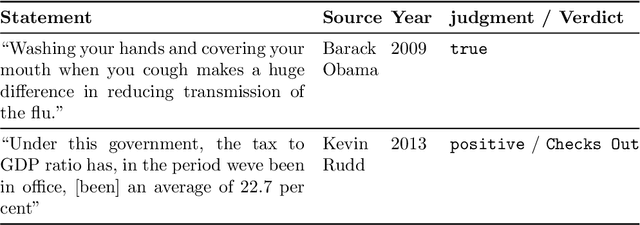

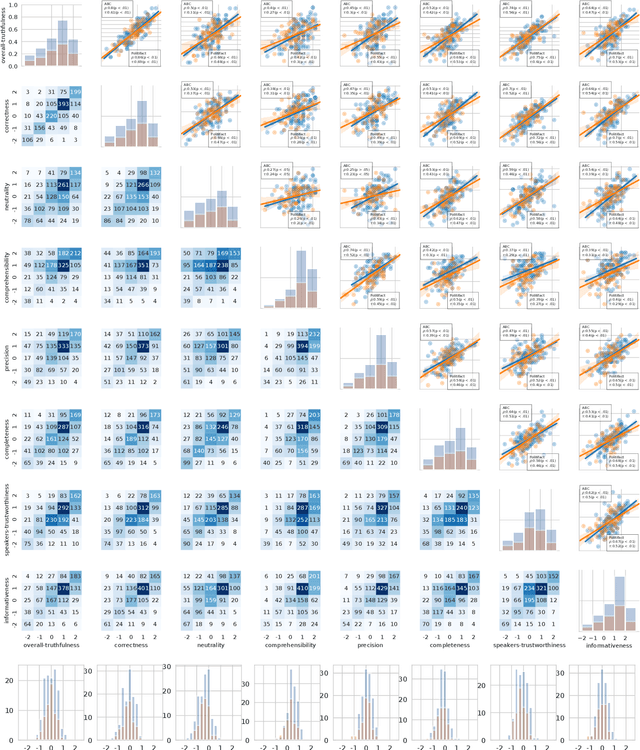
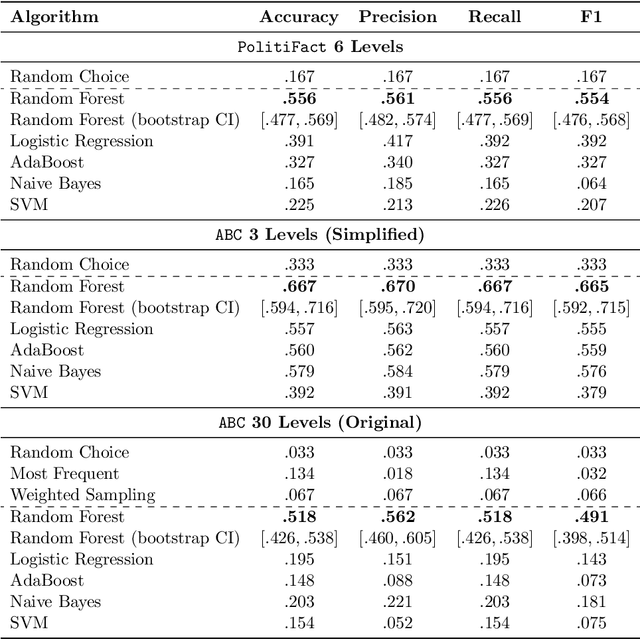
Abstract:Recent work has demonstrated the viability of using crowdsourcing as a tool for evaluating the truthfulness of public statements. Under certain conditions such as: (1) having a balanced set of workers with different backgrounds and cognitive abilities; (2) using an adequate set of mechanisms to control the quality of the collected data; and (3) using a coarse grained assessment scale, the crowd can provide reliable identification of fake news. However, fake news are a subtle matter: statements can be just biased ("cherrypicked"), imprecise, wrong, etc. and the unidimensional truth scale used in existing work cannot account for such differences. In this paper we propose a multidimensional notion of truthfulness and we ask the crowd workers to assess seven different dimensions of truthfulness selected based on existing literature: Correctness, Neutrality, Comprehensibility, Precision, Completeness, Speaker's Trustworthiness, and Informativeness. We deploy a set of quality control mechanisms to ensure that the thousands of assessments collected on 180 publicly available fact-checked statements distributed over two datasets are of adequate quality, including a custom search engine used by the crowd workers to find web pages supporting their truthfulness assessments. A comprehensive analysis of crowdsourced judgments shows that: (1) the crowdsourced assessments are reliable when compared to an expert-provided gold standard; (2) the proposed dimensions of truthfulness capture independent pieces of information; (3) the crowdsourcing task can be easily learned by the workers; and (4) the resulting assessments provide a useful basis for a more complete estimation of statement truthfulness.
* 33 pages; Paper accepted at Information Processing & Management on July 28, 2021; IP&M Special Issue on Dis/Misinformation Mining from Social Media
 Add to Chrome
Add to Chrome Add to Firefox
Add to Firefox Add to Edge
Add to Edge